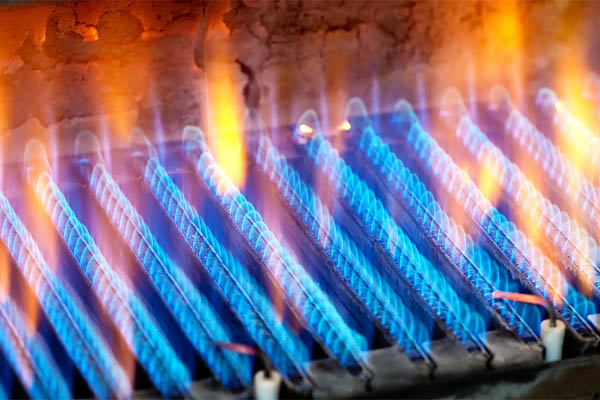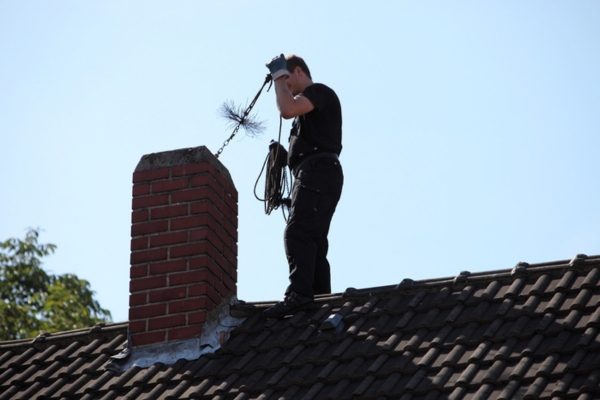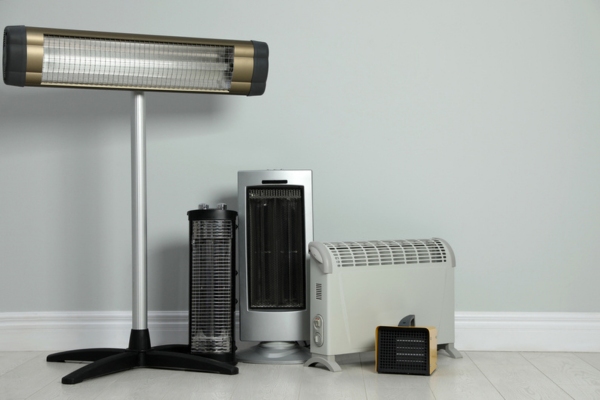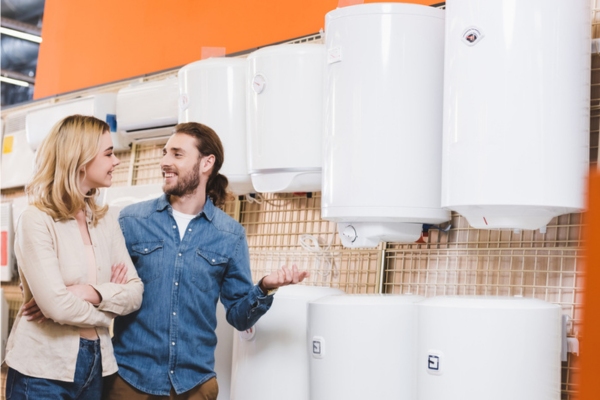As temperatures drop, our reliance on heating systems grows to maintain warmth and comfort throughout winter. While these systems are generally reliable, it’s essential to recognize that they also pose risks. In fact, heating equipment ranks as one of the leading causes of home fires, making it crucial to follow heating safety tips to protect your home.
To prevent your home from becoming a statistic, monitoring and maintaining your heating appliances, including furnaces, fireplaces, space heaters, water heaters, and kitchen stoves, is critical. You can ensure these devices operate safely and efficiently by adhering to essential safety measures and conducting regular checks.
Preventing Accidental Fires: Essential Heating Safety Tips
As you seek to keep your home warm and cozy, there are crucial safety guidelines every homeowner should follow. Below are some heating safety tips from Tevis Energy.
Annual Inspections for Furnaces and Heating Systems

Your heating system is pivotal in moderating indoor temperatures, providing the right amount of warmth to counteract the cold. Whether they run on natural gas, propane, or heating oil, furnaces and heating systems must sustain a continuous flame. In forced-air systems, this warm air is circulated throughout the home via ductwork. Given the complexity and potential for malfunction in such extensive systems, having them professionally serviced at least once a year is advisable.
Stay comfortable year-round—contact Tevis Energy today for all your HVAC needs!
Heating System Inspection: What To Expect
Ensure that professionals thoroughly inspect every element of your heating system, from the unit to the ductwork. They will clean the entire system to avoid any blockages and identify and remove any flammable materials that could pose a risk. Moreover, their expertise ensures the system operates safely—critical since most heating equipment utilizes combustible fuels and electricity, which can both pose fire hazards. Homeowners can contribute to safety by regularly changing the air filter monthly or when it appears dirty.
Don’t delay in securing the safety of your heating system. Call a reputable HVAC service provider for a detailed inspection. Central Maryland and southern Pennsylvania residents can rely on Tevis Energy’s exceptional heating services. Call today to arrange your service appointment!
Chimney Maintenance for Optimal Safety and Efficiency

Many homes feature a fireplace and chimney, offering both warmth and ambiance. However, maintaining these components is crucial. Chimneys can accumulate soot and other debris rapidly, necessitating regular cleaning to ensure they function properly. Even infrequent use of your fireplace demands professional cleaning to maintain safety and efficiency.
There are also products available that can help maintain the cleanliness of your chimney for longer periods. Proper maintenance ensures that smoke is effectively directed upward and out of your home, preventing it from becoming overly hot and hazardous.
Evaluating Chimney Damage
Chimneys are designed to be airtight, but over time, various factors, such as subpar construction, water infiltration, and material wear, can lead to cracks. These cracks may allow air to enter and alter the direction of the flames, potentially directing them toward living spaces rather than being contained within the fireplace.
This poses a risk as common household items like carpets, blankets, pillows, and decorative elements can easily catch fire. If your chimney is older, it is critical to inspect it for potential structural damage promptly, ensuring your safety and giving you peace of mind.
Chimney Screen Barriers
Keep all flammable materials away from the fireplace in light of the potential risks. A diffusion screen can also significantly enhance safety by blocking the fireplace and your living space. This screen allows you to enjoy the view of the flames from a safe distance while effectively capturing any stray sparks or logs that might escape. With such a barrier in place, you can confidently use your fireplace.
Space Heaters & Safety Features

If you’re currently shopping for space heaters, prioritize evaluating their safety features. Opt for models equipped with an emergency cut-off mechanism, which is crucial in preventing accidents. This feature ensures that if the heater is tipped over by pets, children, or otherwise, it will automatically shut off, preventing direct contact with carpets or other flammable materials that could ignite. Since space heaters are a common cause of winter fires, often due to circuit overloads, choosing units with robust safety features is essential.
Anyone in a room with a space heater should use it only when present. Always ensure the heater is placed on flat, stable ground, ideally on non-flammable surfaces like tile or concrete instead of carpet. Position the heater away from windows, beds, and shelves to avoid accidental contact with curtains, bedding, or other items. Maintain a safety zone of at least three feet around the heater, keeping it clear of all objects while it’s in use. Remember to turn the heater off every time you leave the room.
Don’t let unexpected breakdowns disrupt your comfort—call Tevis Energy for prompt and reliable HVAC services!
Fire Safety in the Laundry Room
While the laundry room is typically associated with water, it’s essential not to overlook the potential fire hazards. The dryer, which expels warm air through a duct, is particularly prone to accumulating lint, which can pose a fire risk under certain conditions. Although dryers have lint traps, these are not entirely foolproof. Including the duct in your regular cleaning routine mitigates this risk.
Water Heater Replacement

During the colder months, a water heater becomes essential for providing warm water and preventing pipes from freezing. However, like any appliance, water heaters are subject to wear and tear. Over time, the heating element may fail, mineral deposits can accumulate, and the thermostat might give inaccurate readings.
A strained water heater could lead to a fire hazard if these issues are left unaddressed. To ensure safety and optimal performance, consider replacing older models or have a professional assess and repair any existing issues.
Upgrade your home’s energy efficiency—reach out to Tevis Energy for expert HVAC installation and replacements!
Shift to Central Heating
Due to their direct contact with room contents, space heaters are frequently implicated in household fires. Transitioning to central heating reduces this risk by centralizing heat production to one location, significantly enhancing fire safety.
While the initial investment for central heating might be considerable, the long-term benefits of safeguarding your home from potential fire hazards can make it worthwhile. This shift promotes safety and potentially protects the rest of your house from fire-related damages.
Heating Safety FAQs

Here are some commonly asked questions about heating safety to help you maintain a secure and warm home environment.
What Are the Common Causes of Home Heating Fires?
Home heating fires frequently occur due to the misuse of heating equipment, including placing flammable materials near heaters, utilizing damaged or malfunctioning devices, and neglecting regular maintenance of heating systems.
How Often Should I Have My Heating System Inspected?
Book a professional inspection and tune-up for your heating system annually. Regular check-ups help detect and address potential problems early, ensuring safe and efficient operation.
What Precautions Should I Take When Using Space Heaters?
To safely use space heaters, maintain a minimum distance of three feet from combustible materials like curtains, furniture, and bedding. Always place the heater on a stable and flat surface. Never leave the heater unattended operating, and choose models with an automatic shut-off feature to enhance safety.
What Are the Best Practices for Safely Operating a Fireplace or Wood Stove?
Always use a protective screen to catch flying sparks to safely operate a fireplace or wood stove. Burn only dry, seasoned wood, which helps minimize creosote accumulation—a common cause of chimney fires. Having your chimney professionally inspected and cleaned yearly is crucial to avoid blockages and reduce fire risks. Additionally, never leave a fire unattended, and make sure it is fully extinguished before you retire for the night or leave your home.
How Should I Respond to a Suspected Gas Leak in My Home?
If you think there’s a gas leak, immediately leave your home and call your gas provider or emergency services from a safe distance. Avoid using electrical switches, phones, or any devices that might spark. Keep the doors open as you exit to help the gas disperse.
What Steps Can I Take to Avoid Carbon Monoxide Poisoning from My Heating System?
Install carbon monoxide detectors on all floors and near sleeping areas of your home to prevent carbon monoxide poisoning. Make sure your heating system is vented correctly and undergoes annual inspections. Additionally, never operate outdoor heating devices like portable gas heaters or generators indoors.
What General Heating Safety Tips Should I Follow?
Adhere strictly to the manufacturer’s guidelines for all your heating equipment. Maintain a safe distance between heating sources and any flammable materials. Regularly check and test smoke alarms and carbon monoxide detectors to confirm they are working properly. Additionally, educate everyone in your household about safety tips, safe heating practices, and what to do in an emergency.
Conclusion
Fire poses as one of the gravest threats to any home. It is crucial to exert every effort to prevent them by managing controllable factors, including following heating safety tips. Always consult with professionals when necessary to ensure safety measures are effectively implemented for the best possible outcomes.
Tevis Energy’s sister company, Modern Comfort, performs HVAC installations, heating and cooling replacements, repairs, tune-ups, and more. Our technicians can provide expert HVAC services to ensure that your system provides the comfort and efficiency you deserve. Contact us now to schedule an appointment.
Call Tevis Energy for Expert HVAC Services
Tevis Energy delivers top-notch heating and cooling solutions in central Maryland and southern Pennsylvania. Our team comprises professionally certified technicians who provide outstanding HVAC maintenance, repairs, installations, and replacements. Each technician has the expertise needed to service your HVAC system effectively.
We pride ourselves on offering the region’s most competitive heating and cooling services prices. Our maintenance work enhances your comfort and boosts your system’s energy efficiency, reducing your overall heating and cooling expenses.
Should you require HVAC repair or are considering a system upgrade, we’re here to recommend the best solutions that fit your budget. We stand behind our work with a satisfaction guarantee. Contact Tevis Energy today to schedule your free in-home estimate and service appointment.
You can click here to contact us now or call us at (410) 876-6800 to find out more! Click the link to view our service area.

Related Articles:
- What Is The Best Temperature For A Home In The Winter?
- Carbon Monoxide Safety Reminders For This Heating Season
- Essential Tips For Surviving A Home Heating Emergency
- Unlock 10 Winter Hacks to Keep Your Home Cozy Without Turning Up the Thermostat
- Thermostat Setback: Can Dialing Down Your Thermostat Save Money?
